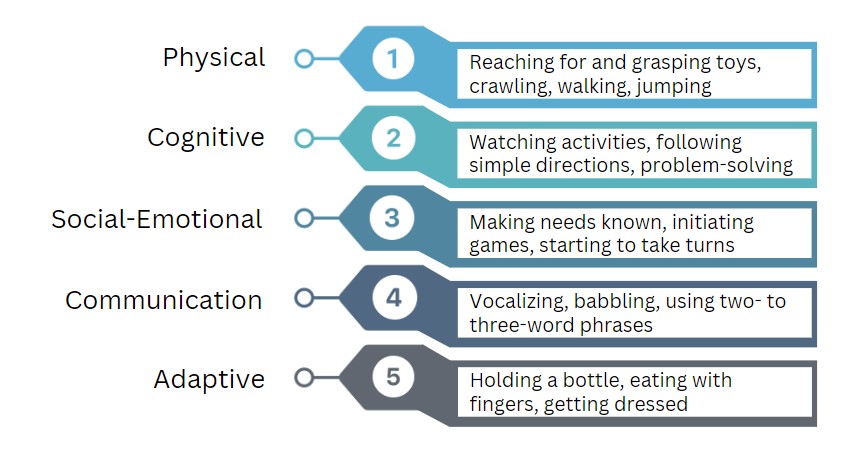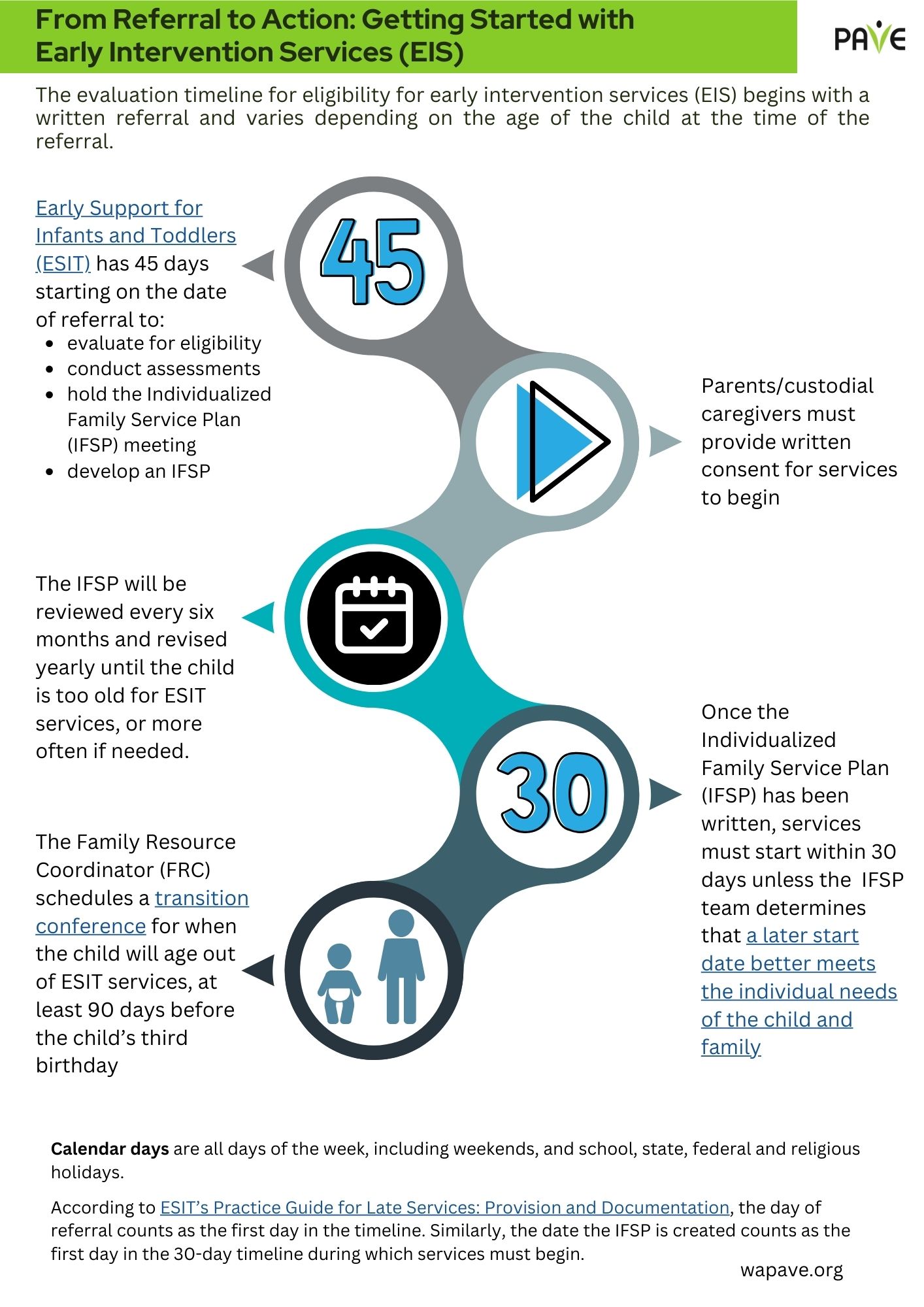A Brief Overview:
- The Individuals with Disabilities Education Act (IDEA) requires states to provide ways to resolve disagreements between parents and schools about a student’s Individualized Education Program (IEP).
- IEP facilitation is a voluntary and informal process where a neutral facilitator helps parents and schools resolve special education concerns collaboratively. This service is provided at no cost by Sound Options Group.
- Washington State Governor’s Office of the Education Ombuds (OEO) acts as a neutral guide to help parents and schools resolve disagreements about special education services, without providing legal advice or advocacy.
- OSPI provides three formal special education dispute resolution processes: mediation, special education community complaint, and due process hearing.
- If parents win a due process hearing or civil lawsuit, the school district might have to pay their attorneys’ fees. Conversely, if the complaint is deemed frivolous, parents might have to pay the school district’s fees.
- Protections are in place for children not yet identified as needing special education if disciplinary actions are taken.
- Every school district has a process for filing complaints related to harassment, intimidation, and bullying (HIB).
- Complaints about discrimination involving students with disabilities can be filed with OSPI or the U.S. Department of Education’s Office for Civil Rights (OCR). OCR will not handle cases already being addressed by another agency or school process unless the process is completed and the complaint is filed within 60 days.
Full Article
The Individuals with Disabilities Education Act (IDEA) requires that each state education agency provide ways to solve disagreements between parents and schools regarding a student’s Individualized Education Program (IEP). These options ensure that parents and schools can work towards a mutually agreeable solution while protecting the child’s right to a Free Appropriate Public Education (FAPE). The Office of Superintendent of Public Instruction (OSPI) offers both informal and formal dispute resolution processes.
These dispute resolution options provide structured processes for addressing and resolving disagreements, ensuring that the rights of students with special needs are upheld and that they receive the education and services to which they are entitled.
Informal Dispute Resolution
IEP facilitation is a voluntary and informal process where parents and school districts can address their special education concerns with the assistance of a trained, neutral facilitator. This process allows both parties to resolve issues collaboratively without the formality of mediation, and it is provided at no cost. OSPI contracts with Sound Options Group to offer free facilitation services from facilitators skilled in conflict resolution to help clarify disputes, set agendas, and work towards mutually agreeable solutions. Participation in facilitation is entirely optional for both families and districts.
The IEP facilitation process starts when either a family or a school district contacts the Sound Options Group to request help. A parent can request facilitation by contacting Sound Options Group directly by phone at 800-692-2540 or 206-842-2298 (Seattle) to request a mediation session. For Washington State relay service, dial 800-833-6388 (TDD) or 800-833-6384 (voice). Sound Options Group gathers initial information about the student and the needs of both parties, confirming that both the family and district agree to proceed with a facilitated IEP meeting. Once the IEP team sets a date for the 3–4-hour meeting, the facilitator is assigned. The facilitator helps everyone prepare by sharing documents, setting a mutually agreeable agenda, confirming the meeting details, and preparing both parties for the meeting. After the facilitated IEP meeting, a case worker from Sound Options Group and the facilitator review the session and decide if another meeting is needed. A successful facilitated IEP meeting will result in the development of an IEP that is tailored to meet the unique needs of the student.
Another option for informal dispute resolution is Washington State Governor’s Office of the Education Ombuds (OEO), which helps parents and schools resolve disagreements about special education services. Acting as a neutral and independent guide, the OEO helps parents and educators understand special education regulations, facilitates problem-solving, and advises on communication strategies to support a team approach to a student’s education. The OEO does not provide legal advice, act as an attorney, conduct investigations, or advocate for any party. OEO can be contacted through their online intake form or by phone (1-866-297-2597) with language interpretation available.
Formal Dispute Resolution
When informal methods are unsuccessful, families and schools can turn to formal dispute resolution processes outlined in the procedural safeguards[DB1] and available through the special education system. A copy of the procedural safeguards notice for Washington is downloadable in multiple languages from the Office of Superintendent of Public Instruction (OSPI).
In Washington state, the formal dispute resolution options are:
1. Mediation
Mediation is a voluntary process provided at no cost to parents and schools. It is designed to resolve disputes related to the identification, evaluation, educational placement, and provision of FAPE. Both parties must agree to participate in mediation. Mediators are trained, impartial individuals knowledgeable about special education laws. OSPI contracts with Sound Options Group to provide trained, neutral mediators to facilitate effective communication and problem-solving between parents and school districts. This brochure, Mediation in Special Education, outlines the services provided by Sound Options Group. Discussions during mediation are confidential and cannot be used in due process hearings or civil proceedings. If an agreement is reached, it must be documented in writing and is legally binding. Parents can contact Sound Options Group directly to request mediation.
2. Special Education Complaint
Any individual or organization can file a special education complaint if they believe a school district or public agency has violated Part B of the Individuals with Disabilities Education Act (IDEA). Complaints must be filed within one year of the alleged violation. OSPI investigates the complaint, gathering information from both the parent or guardian and the school district. OSPI then issues a written decision addressing the complaint and any corrective actions required within 60 days of receiving the complaint. PAVE has developed this training video, Procedural Safeguards: How to File a Special Education Complaint, that walks through OSPI’s community complaint form with a pretend scenario.
3. Due Process Hearing
A due process hearing is a formal meeting to resolve disputes about a child’s identification, evaluation, placement, or FAPE. Either parents or the school district can request this hearing, but they must do so within two years of the issue, unless there was misrepresentation or withheld information. The request for a due process hearing must be in writing, signed, and include:
- the name, address, and contact information of the student (even if homeless)
- the name of the student’s school
- the school district responsible for the IEP
- a description of the issue, the facts, and related events
- your proposed resolution
The original request must be provided to the other party – the parent or guardian must send it to the superintendent of the student’s school district, and the school district must provide the original to the parent or the guardian of the student. In addition, a copy of the request must be sent to the Office of Administrative Hearings by mail (PO Box 42489, Olympia, WA 98504-2489), fax (206-587-5135), or email (oah.ospi@oah.wa.gov). The party asking for a due process hearing must have proof that they gave their request to the other party.
Before the hearing, the school district must meet with the parents and relevant IEP team members within 15 days to try to resolve the issue at a resolution session. OSPI provides a direct to download form, Information and Forms on Resolution Sessions. During the hearing, both sides present evidence and witnesses. Parents have the right to bring a lawyer, present evidence, and question witnesses. An administrative law judge (ALJ) makes a decision, which can be appealed in state or federal court. The decision is final unless it is appealed and the decision is overturned. If an agreement is reached before the hearing, it must be written down in a settlement agreement.
For disputes about disciplinary actions that change a student’s placement, expedited due process hearings are available. These hearings happen faster than regular ones to resolve urgent issues quickly.
Dispute Resolution Outside of Special Education
If parents disagree with the decision made in a due process hearing, they have the right to file a civil lawsuit in state or federal court. This must be done within a specific time period, often 90 days, after the due process hearing decision. The court will review the administrative record, hear additional evidence if necessary, and make a ruling (decision) in the case. The civil lawsuit is not a part of the special education dispute resolution process and there are additional costs associated. Please note that PAVE is not a legal services agency and cannot provide legal advice or representation. Washington State Office of Administrative Hearings has compiled this Legal Assistance List for Special Education Due Process Disputes.
If parents win a due process hearing or lawsuit, the school district might have to pay their attorneys’ fees. But if the court decides the complaint was frivolous or filed for the wrong reasons, parents might have to pay the school district’s attorneys’ fees.
Additional Considerations
If a child hasn’t been identified as needing special education but parents think they should be, there are protections if the child faces disciplinary actions. If the school knew the child might need special education services before the behavior happened, they must follow special education disciplinary procedures.
Every school district has a process for filing a formal complaint related to harassment, intimidation and bullying (HIB). PAVE has compiled information and resources to address bullying in this article, Bullying at School: Resources and the Rights of Students with Special Needs.
Complaint Processes Related to Discrimination
OSPI’s Complaints and Concerns About Discrimination page states, “Each student must have equal access to public education without discrimination.” This page contains Discrimination Dispute Resolution Information Sheets that contain definitions of key terms, information about the role of district Civil Rights Compliance Coordinators, and instructions and requirements for filing different types of complaints, available for download in different languages. Anyone can file a complaint about discrimination involving students with disabilities in a Washington public school, which is prohibited by Washington law (RCW 28A.642.010). Formal discrimination complaints must be written, and the complaint must contain:
- a description of the incident
- why it is allegedly discriminatory
- proposed corrective action the district or charter school can take
The formal discrimination complaint must be hand carried, mailed, faxed, or emailed to district superintendent, administrator of the charter school, or Civil Rights Coordinator. When a school district or charter school receives a complaint, it must investigate and respond within 30 days, unless an extension is agreed upon. The civil rights coordinator provides the complaint procedure and ensures a thorough investigation. If exceptional circumstances require more time, the school must notify the complainant in writing. The school can also resolve the complaint immediately if both parties agree. After the investigation, the school must respond in writing, summarizing the results, stating whether they complied with civil rights law, explaining appeal options, and detailing any corrective measures, which must be implemented within 30 days unless otherwise agreed.
Students with disabilities in public schools are also protected against discrimination by federal laws, including Section 504 of the Rehabilitation Act of 1973 and IDEA. The U.S. Department of Education’s Office for Civil Rights (OCR) accept complaints with overlapping civil rights concerns, such as racism and disability discrimination. An OCR complaint must be filed within 180 calendar days of the alleged discrimination. If the school district’s dispute resolution process is already handling the case through a means like what OCR would provide, OCR will not take on the case. Once the school district’s process is completed, individuals have 60 days to file their complaint with OCR, which will then decide whether to accept the result from the other process. OCR provides step-by-step instructions for filing a discrimination complaint.
Some families are anxious about questioning actions taken by the school. Parents have protections under the law. The Office for Civil Rights maintains specific guidelines that prohibit retaliation against people who assert their rights through a complaint process.
Additional Resources:
- OSPI’s Dispute Resolution page
- OSPI’s Students’ Rights Information Sheet: Discriminatory Harassment (available in multiple languages)
- OSPI’s Students’ Rights Information Sheet: Section 504 (available in multiple languages)
- PAVE’s Quick Start Your Advocacy in Two Steps (video)
- TeamChild civil legal services provided to youth (King, Pierce, Spokane, and Yakima counties only)



